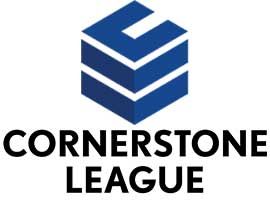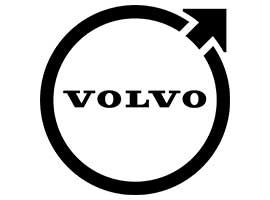
SIZE DOESN’T MATTER: HOW SMALL BUSINESSES CAN ATTRACT TOP TALENT
Promoting your Employee Value Proposition (EVP) is an effective strategy for attracting and part of the foundation for retaining employees regardless of the size of the business. Guest writer, Danielle Shroyer, founder of Engage HR, a boutique Human Resources consulting firm, presents insight for small businesses to compete for talent against large corporations.
As Danielle provides excellent advice for small businesses to attract talent, she and I are aligned in how EVP and cohesion retains them. We know that you cannot simply offer an EVP without backing it up. AND, a cohesion-infused culture provides the foundation to sustain the impact gained through attracting employees with EVP.
from Danielle …
“What impact have we created in the current talent pool when high school graduates are taught to prioritize 4-year degrees over trade schools?
If small businesses are the lifeblood of the community, how can they compete for talent against large corporations?
Once they attract, retention is the next hurdle. That’s where cohesion comes in. No matter how big or small, every company can find success infusing belonging, value, and mutual commitment into their culture. Today’s employee talent are looking for companies that include the worker’s voice, offer purpose and meaning to their work, and provide opportunities for employees to collaborate.
When I look at my LinkedIn feed, it seems everyday someone new is “Open to Work” and others are complaining about how many applications they have submitted, how many interviews they have gotten, etc. And then I hear of employers having such a hard time hiring and retaining employees. There is a clear disconnect…the people who are losing their jobs are mostly professionals with, once, highly sought after (and expensive) college degree. While most of the current openings don’t require those college degrees.
We set ourselves up for this workforce discrepancy as we sent all of our high school graduates off to four-year schools for the last 30 years and ignored the trade programs and manufacturing workforce pipeline. We continue to have a shortage of people in the skilled trades and general laborers. Yet, it seems we continue to create more and more skilled trades, manufacturing and general labor openings. It makes me question if the corporations, equity firms and state governments have truly analyzed our workforce pipeline. The labor shortage is a real thing and robots can’t do everything, yet.
Stuck in the middle of this quandary are the small businesses. I’m talking to you: restaurants/bars, contractors, retailers, credit unions, hotels, daycares, nursing homes, landscapers, car washes, etc. I see you. I know you are struggling with staffing. I’ve seen too many public-facing businesses have to close for a day or more or repeatedly limit their services due to staffing issues. If 3 people are absent from work at a large company, there are people to jump in and do their work. If 3 people are absent from work at a small business, there is no one to do the work, because everyone is already wearing multiple hats. They don’t have the ability to greet the customers, take the order, cook the food, deliver the food, refill the drinks, clean the tables, etc. It’s impossible.
Small businesses are the lifeblood of the community and are usually sought after by their customers over large corporations, chain restaurants, or big box stores. People would rather have their money going back into the community and supporting the owners, their neighbors. However, a lot of times, small businesses feel they are at a disadvantage competing against the large corporations for employees because they can’t offer everything the big companies can…such as higher pay, expensive benefits, etc.
This is where it is helpful for small businesses to understand their EVP or their Employee Value Proposition. An EVP is what you offer to your employees in exchange for their skills, experience and commitment to your business. What are your employees getting by working for you besides a paycheck? Basic benefits are great, but what about the intangibles?
Do they get great hours and then have the rest of the day to run their side hustle, hang at the pool, or spend time with their kids?
Do they get part-time hours that work better for their schedule and other obligations?
Are your hours friendly for parents who take their kids to and from school?
Do they get to interact with all different types of people?
Do they get to learn different things?
What is the benefit of working for you?
Do you offer discounts?
Free Meals?
Do you partner with others who may offer this to your employees?
Does your company get involved in the non-profit space to give back to the community?
Get creative!
If you think you can’t compete with the larger companies paying more, think again…large companies aren’t for everyone and lately, they are becoming for less and less. I have seen more and more people leaving corporate in search of a lower stress role. Take the Viral Barista on LinkedIn, she was even featured in a recent Buzzfeed article: 'Bridge Jobs' Are Going Viral — Here's Why (buzzfeed.com). (cringe - yes I just referenced a Buzzfeed article)
Large companies have large workforces which removes their ability to be flexible. They have to have strict policies and procedures in place that don’t allow for much leeway for employees to be human. If an employee has extenuating circumstances, they need flexibility. An employee may be late due to a sick child or a flat tire. Being a small business, you are better able to provide that flexibility (provided they still show up to work, are a good employee, and this isn’t happening everyday). Or maybe someone can’t work on Wednesdays because they have to take their family member to a weekly appointment, but they can work Monday, Tuesday, Thursday, Friday, and Saturday. As a small business, you can schedule around that employee’s needs, while the large corporate machines are unable to.
You have the flexibility to set yourself apart from those corporate conglomerates by showing what you can offer to your employees. You are also able to provide them with a wider range of experience than a large company. Roles at large businesses are very compartmentalized, each individual has 1 role, while you can provide your employees with more diverse roles giving them experience in a lot of areas, at once. For example, an accounting professional at a large corporation may only be responsible for accounts payable. In a small business, you may have an office manager who handles Accounting, HR, Administration, and greets the people who come in your door! How much great experience is that individual receiving by holding that role and getting exposure to all the things?!
Finally, at large companies, employees are left to their own devices, a lot of managers aren’t engaged or involved. They don’t call to check in weekly, they just let their employees do their thing until something goes wrong. While in a small business, you get to interact with your manager or owner daily. People want that interaction to know they are doing the right thing and a good job, as well as mentorship so they can learn from you!
So my advice to small businesses, don’t focus on what you can’t offer, focus on what you can offer, tell people about it, and find your people who value those things! Know your full EVP and scream it from the rooftops!”
Thank you, Danielle Shroyer, for sharing your insights with our Cohesion Corner™ with Dr. Troy audience! Your expertise illuminates the unique challenges and opportunities small businesses face in today's competitive job market.
Understanding and promoting their Employee Value Proposition along with cohesion can empower small businesses to attract and retain top talent by emphasizing the benefits they can offer beyond just a paycheck. From flexible schedules and diverse roles to a supportive community and personal interaction, small businesses have the potential to create a work environment that large corporations often cannot.
By focusing on these strengths, small businesses can stand out as desirable places to work, fostering a culture of cohesion where employees feel valued, belonging, and mutual commitment. Embracing this approach not only helps in retaining employees but also contributes to the overall growth and success of the business and the community it serves.
To all small business owners, take these insights to heart, leverage your unique advantages, infuse cohesion into your culture, and watch your teams stick around and thrive.
Click here to subscribe to Cohesion Corner™ with Dr. Troy so you never miss a newsletter.
To learn more, click here to purchase your very own copy of my book Cohesion Culture: Proven Principles to Retain Your Top Talent.
For more insight on this topic, please refer to these blog posts:
- Toxicity is the Silent Culture Killer
- Embracing Generational Diversity in the Workplace for Enhanced Cohesion
- 7 Ways Cohesion Combats Disengagement & Burnout
Interested in reading more from Dr. Troy Hall? Check out my books available for purchase on Amazon.






